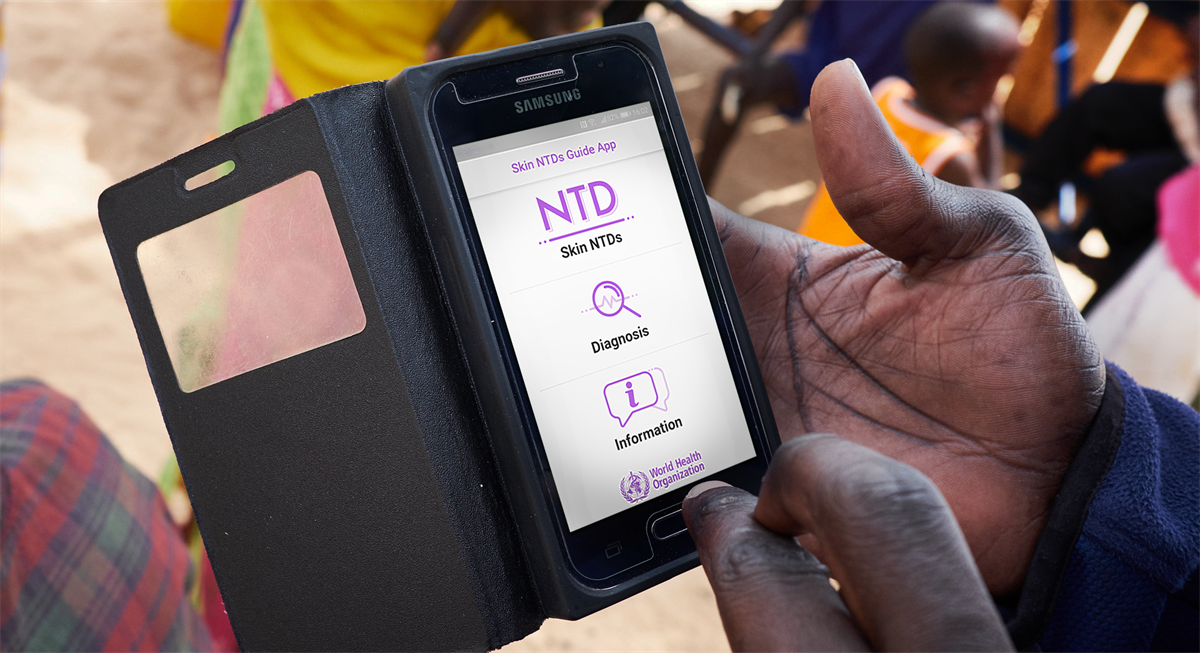WHO unveiled an upgraded version of Skin NTDs App aimed at aiding frontline healthcare workers in the diagnosis & management of skin-related neglected tropical diseases.

The World Health Organization (WHO) has unveiled an upgraded version of its Skin NTDs App, a vital tool aimed at aiding frontline healthcare workers in the diagnosis and management of skin-related neglected tropical diseases (skin NTDs).
This updated App is now available for free on both Android and iOS devices. To ensure a seamless installation, users may need to delete the previous version from their devices.
This milestone achievement is the product of a collaborative effort between WHO and Until No Leprosy Remains (NLR).
NLR generously transferred the content of its SkinApp, encompassing information on skin-related neglected tropical diseases, 24 common skin diseases, and select HIV-related skin conditions, to the WHO Skin NTDs App. This collaboration has resulted in a comprehensive and user-friendly resource aligned with the latest WHO recommendations.
The upgraded App boasts several key features:
Logical, Offline Algorithm:
Operating offline, the App employs a logical algorithm to aid health workers in making precise diagnoses and treatment decisions.
Multilingual Support:
Currently available in English and French, there are plans to explore translations into additional languages like Portuguese and Spanish to better serve diverse communities.
Learning Resources:
The App includes a “Skin NTDs Learning” section, offering valuable training materials for front-line health workers. This content is derived from the WHO manual “Recognizing neglected tropical diseases through changes on the skin: A training guide for front-line health workers.”
Cutting-Edge AI Integration (Beta):
In addition to the public version, WHO is collaborating with Universal Doctor and Belle.ai to develop a beta version of the App. This version incorporates two online artificial intelligence (AI)-based algorithms capable of instantly classifying photos of skin lesions.
Field tests are planned in selected countries to evaluate the usability and performance of these AI algorithms in real-world conditions. The ethical implementation of AI is emphasized throughout its development and utilization.
Dr. José Postigo, a Medical Officer in the WHO Global Neglected Tropical Diseases Programme focusing on skin NTDs, highlighted, “This software application will rapidly furnish healthcare professionals with practical information for a particular disease, encompassing its clinical characteristics, treatment protocols, and geographic prevalence. Accessing the interactive menu and a few simple clicks suffice to assist healthcare workers in identifying the most common skin conditions.”
Dr. Kingsley Asiedu, Team Leader for Skin NTDs at the WHO Global Neglected Tropical Diseases Programme, added, “The WHO Skin NTDs App represents a significant step forward in the fight against NTDs affecting the skin. By providing health workers with a robust and accessible tool, WHO aims to enhance early detection, streamline treatment, and ultimately improve the lives of individuals affected by these diseases.”